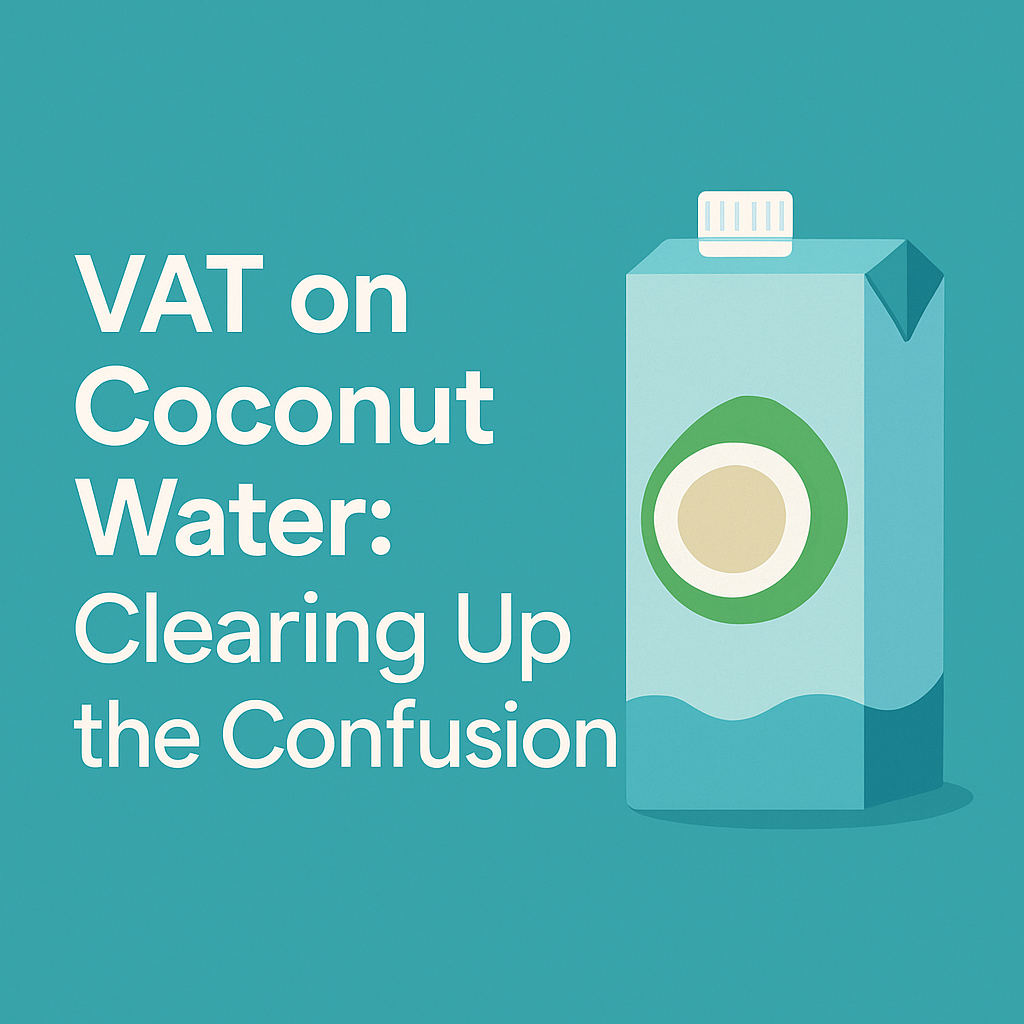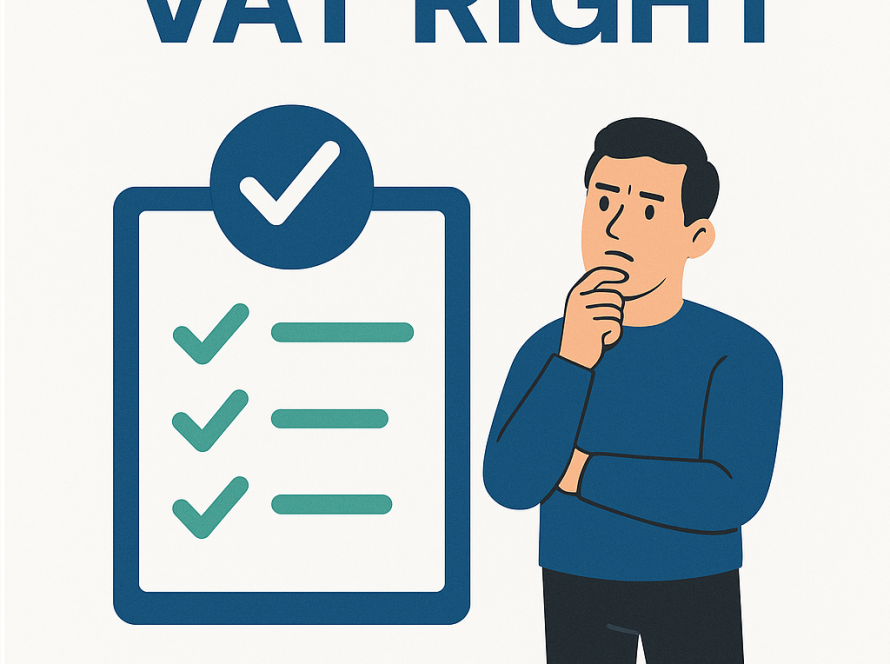One of our clients recently approached us with a common but important query: “Why am I being charged VAT on coconut water? I was told by another store owner that it should be zero-rated like fruit juice.”
This kind of confusion is understandable. After all, coconut water is a natural liquid extracted directly from the inside of a coconut. It’s hydrating, often labelled as 100% natural, and commonly consumed as a healthy alternative to sugary soft drinks. So why is it subject to the standard 20% VAT rate?
As accountants specialising in advising businesses, particularly those in the food and drink sector, we believe it’s essential to clear this up with proper reference to HMRC guidance and case law.
HMRC’s View on Coconut Water
HMRC classifies most beverages as standard-rated for VAT, except for specific exemptions like:
- Milk
- Pure fruit or vegetable juice (100%)
- Tea, coffee, and water (in specific contexts)
Coconut water, while natural, does not qualify as a fruit juice under VAT rules. Why? Because VAT law interprets “fruit juice” as a liquid obtained from the edible parts of fruits such as apples, oranges, or grapes. Coconut water, on the other hand, is found inside the seed of the coconut, not derived from pressing or juicing fruit flesh.
Key Court Ruling: Chi Drinks Ltd v HMRC
This issue was tested in court in the case of Chi Drinks Ltd v HMRC (2022). Chi Drinks, a business importing and distributing coconut water, argued that their product should be zero-rated as a fruit juice.
However, the First-tier Tribunal disagreed. The court ruled that coconut water is a beverage, not a fruit juice, and therefore is subject to standard-rated VAT at 20%.
The Tribunal clearly stated:
“Coconut water is not fruit juice in the way that apple or orange juice is. It is consumed as a beverage and marketed as such.”
This judgment remains the key precedent for how coconut water should be treated for VAT purposes.
Organic Coconut Water – Any Exemption?
We’ve also been asked whether organic coconut water qualifies for a different VAT treatment. Unfortunately, the answer is no. VAT classification is not based on whether a product is organic or conventional, but on its category of supply. Since coconut water is considered a beverage, it is standard-rated regardless of how it is produced.
Summary Table
| Product | VAT Rate | Notes |
|---|---|---|
| Coconut water (all types) | 20% | Treated as a beverage, following Chi Drinks case |
| Coconut milk | 0% | Treated as a culinary ingredient |
| Pure orange/apple juice (100%) | 0% | Meets fruit juice criteria under VAT rules |
| Flavoured or fizzy drinks | 20% | Always standard-rated |
Final Thoughts
Applying the wrong VAT treatment can have serious consequences, including backdated assessments, penalties, and interest from HMRC. Many business owners assume certain items are zero-rated based on appearance or hearsay but VAT law is precise, and ignorance is not a defence.
If your business sells drinks, health products, or other food items, it’s essential to be confident in your VAT categorisations. Mistakes can be costly, especially when selling at volume.
Need Help?
If you’re unsure about the correct VAT treatment of products you’re selling or supplying, don’t leave it to chance. Book a FREE no-obligation call with our team at NiS Accountants today. We’ll help you get it right and stay compliant, protecting your business and your bottom line.
Click here to Book your FREE VAT review call now
Disclaimer: This blog post is provided for general guidance only and does not constitute formal tax, legal, or financial advice. You should not act on any information in this article without seeking professional advice tailored to your circumstances. NiS Accountants accepts no liability for any decisions made based on the above content.



